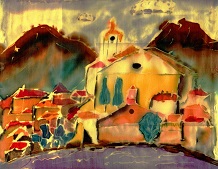 Safaris
Bergsteigen
Wandern
Inselwandern Weltweit
Safaris
Bergsteigen
Wandern
Inselwandern Weltweit
 Europa
Inselwandern
Europa
Inselwandern
 Städtewandern
Städtewandern
 Paintings
Paintings Dirk Rauschenbach
Dirk Rauschenbach
 Safaris
Bergsteigen
Wandern
Inselwandern Weltweit
Safaris
Bergsteigen
Wandern
Inselwandern Weltweit
|
 Europa
Inselwandern
Europa
Inselwandern
|
 Städtewandern
Städtewandern
|
 Paintings
Paintings |
 Dirk Rauschenbach
Dirk Rauschenbach
|
|
Back Crossbordersafari 2017 Rundreise Kenia 2009 Nairobi Samburu Nakuru Masai Mara Amboseli Tsavo Mafia Chimpssafari 2011 Uganda Lodges & Landscapes 2013
|
|
|
| Karuma Karumafalls Nile River Katarakt | Karuma Karumafalls Nile River Katarakt |
|
|
|
| Karuma Karumafalls Nile River Katarakt | Road From Karuma going over Pakwatch to Congo |
|
|
|
| Karumaroad to Pakwatch Many traffic accidents at night | Karuma Karumafalls Nile River Katarakt |
|
|
|
| Karuma Many traffic accidents at night | Karuma Karumafalls Nile River Katarakt |
|
|
|
| Karuma Karumafalls Nile River Katarakt | Karuma Karumafalls Nile River Katarakt |
|
|
|
| Karuma Karumafalls Nile River Katarakt
Karuma Falls is one of Uganda’s most famous and stunning waterfalls, located on the Nile River in the northern part of the country. The falls are situated within the Karuma Wildlife Reserve, which is located in Kiryandongo District. The falls are an essential part of Uganda's natural beauty and are often admired for their dramatic and powerful flow, as well as their surrounding scenic landscapes. Key Features of Karuma Falls:
Significance of Karuma Falls:
Fun Facts:
Karuma Falls is not only a beautiful natural site but also a symbol of Uganda's ongoing efforts to harness its natural resources for energy development, while also preserving its wildlife and natural beauty for future generations. It remains a popular spot for travelers and nature enthusiasts. |
Karuma Filling station Friendly D&G karuma auch in Namibia Die Karumafälle sind eine beeindruckende Naturattraktion in Namibia, die sich im Fish River Canyon Park befinden. Sie sind Teil des Fish River, des längsten Flusses Namibias, und bieten Besuchern eine atemberaubende Aussicht auf die dramatische Landschaft des Canyons. Die Karumafälle sind weniger bekannt als andere Wasserfälle in Afrika, aber sie sind ein verstecktes Juwel für Naturliebhaber und Abenteurer. Merkmale der Karumafälle:
Warum die Karumafälle besuchen?Die Karumafälle sind ein beeindruckendes Naturphänomen in einer der abgelegensten und unberührtesten Landschaften Namibias. Sie bieten Besuchern die Möglichkeit, die Schönheit und Stille der Wüste zu erleben, fernab vom Massentourismus. Die Kombination aus dramatischen Landschaften, abenteuerlichen Aktivitäten und der reichen Tierwelt macht die Karumafälle zu einem lohnenden Ziel für Reisende, die das Außergewöhnliche suchen |
Mit Ihrer Unterstützung kann FLY & HELP vielen Kindern weltweit eine bessere Schulbildung ermöglichen. Jeder Cent, den Sie spenden, fließt ausschließlich in die Projekte. Schon mit kleinen Beiträgen kann die Reiner Meutsch Stiftung FLY & HELP viel bewirken. Wir leiten alle eingehenden Gelder in voller Höhe weiter. Ohne Abzug von Verwaltungs-, Werbungs- oder Organisationskosten. Denn Reiner Meutsch trägt alle Kosten privat bzw. diese werden von Sponsoren übernommen. Gleichzeitig überprüfen wir die ordnungsgemäße Verwendung der Spenden. Wir arbeiten ausschließlich mit seriösen Organisationen in den Ländern vor Ort zusammen. Spenden Sie und schenken Sie dadurch Kindern eine Zukunft!
Reiner Meutsch Stiftung FLY & HELP
Langstraße 10
57612 Kroppach
Tel. 02688 / 989011
![]() 26.07.25 Copyright Dirk
Rauschenbach Koelnerstrasse 293 51702 Bergneustadt
Datenschutzerklaerung 02261 9788972 Mail ccooly(
at) web.de
26.07.25 Copyright Dirk
Rauschenbach Koelnerstrasse 293 51702 Bergneustadt
Datenschutzerklaerung 02261 9788972 Mail ccooly(
at) web.de